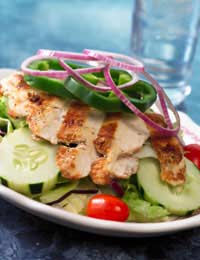Nutritional Counselling and Advice

Nutritional counselling, sometimes called nutrition therapy, nutrition intervention or nutrition coaching, is an important component of the treatment of eating disorders such as anorexia, bulimia and binge eating disorder. Because eating disorders are marked by abnormal food and eating behaviours, nutritional counselling is required to give individuals correct information on a healthy diet, daily caloric needs and how to plan for meals and snacks.
Though many individuals with eating disorders initially resist this information – preferring instead to think that their food knowledge and eating disorders are “right” – over time nutritional counselling can help individuals put together a balanced diet. Usually this kind of counselling is given by a registered dietician or nutritionist, though some mental health professionals may receive training on nutritional topics as well. Generally, nutritional counselling is referred after an eating disorder diagnosis has been made and a medical and/or mental health professional has organised an individualised treatment plan for the patient.
Components of Nutritional Counselling
Nutritional counselling is just one of many treatment options that generally form a treatment plan for a given individual suffering from an eating disorder. This counselling can occur on an out-patient basis, whereby the individual lives at home and attends counselling sessions, or while an individual is residing at a hospital or clinic for the treatment of his/her eating disorder.Unfortunately, nutritional counselling can be rough going at first because many individuals diagnosed with an eating disorder already feel that they are experts on the subject and can not recognise how skewed this thought is. During nutritional counselling, a dietician or nutritionist will provide information and advice on a variety of topics, including:
- Food and drink requirements for a healthy body.
- Recommended daily intake of vitamins and minerals.
- How the body physically uses food, and what to eat and drink for optimal health.
- How individuals use food emotionally.
- How to sort through the myths to find out the facts about foods, particularly tinned, frozen or otherwise pre-packaged food.
- When and how to use vitamin and mineral supplements correctly.
- How to design healthy menus and meal plans.
- How to identify fears regarding particular foods and food groups.
- Why and how feared foods and food groups are required by the body, and the long-term health risks that accompany shunning these foods.
Treatment Plans for Eating Disorders
While dieticians and nutritionist work to help individuals suffering from eating disorders become comfortable with the idea of a balanced, healthy diet, this information is usually only a part of a treatment plan that also addresses the eating behaviours and emotional connotations that are a part of the eating disorder.For individuals suffering from eating disorders, treatment plans must take a holistic view and attempt to heal all of the physical, mental and emotional concerns that characterise their disorder.
To this end, treatment plans including a variety of different treatment types are common. For example, in addition to nutritional counselling an individual suffering from an eating disorder might also attend individual counselling or talk therapy, family counselling, cognitive behaviour therapy (to change food and eating behaviours), and attendance at support groups or group therapy.
Only rarely are eating disorders treated with medication unless it is prescribed to treat associated conditions such as depression. Further information on nutritional counselling and the treatment of eating disorders should be obtained from a GP, private mental health professional or from the Eating Disorders Association and/or National Centre for Eating Disorders.
- Creating Healthy Attitudes Towards Food
- Cognitive Behavioural Therapy for Eating Disorders
- Eating Disorders and Interpersonal Therapy
- Family Therapy and Eating Disorders
- Group Therapy for Eating Disorders
- Support Groups for Individuals
- Eating Disorders and Psychoanalytic Psychotherapy
- Hospitalisation and Eating Disorder Clinics
- Rationale Emotive Therapy for Eating Disorders
- Medication Used to Treat Eating Disorders
- Alternative Therapies for Eating Disorders


Re: Eating by Texture
i can't eat porridge, yogurt and the most types of meat. also i can't drink kefir and juices. i just can't stop gagging while eating/drinking…
Re: Colour Coded Eating
I eat all colors but I can't have more than one color in my mouth at a time, like I can't eat fruity pebbles there's too many colors that I…
Re: Eating by Texture
I need to understand my oroblem. Eating health is hard. I cant really diet due to food allergies and diabetes, but I have a lit of food…
Re: Eating Disorders and the Physical Signs
I’ve been to the gp several times but apparently I don’t look anorexic. I’m 5’3 and weigh around 49 kg. When I eat I…
Re: Dental Damage and Eating Disorders
If you're worried about your weight, eat healthy, research your ideal weight for your age, height and bone structure and…
Re: Eating by Texture
Hi I've avoided soft textured food forever. My father also & he has this full blown, only eats crunchy things. Over the decades it's got better…
Re: Recovering From Anorexia: How Do I Prevent Swollen Stomach?
My daughter is recovering from anorexia (34 hrs old - diagnosed 15 years ago) What do I…
Re: Eating by Texture
I don’t like most veg. The only raw veg I can eat is cucumber. Cooked, I like carrots, cauliflower, baby corn, onion (if it’s well cooked and/or…
Re: Pica Disorder
Potato Boy back. I was doing great for a while but then shelby left me for my dad. I was doing so good. My best friends had an intervention for me and…
Re: Why Does Eating Make Me Feel Sick?
I'm a 22 year old female who has been suffering with anorexia for four years. My fiance and I recently broke up, and I had…